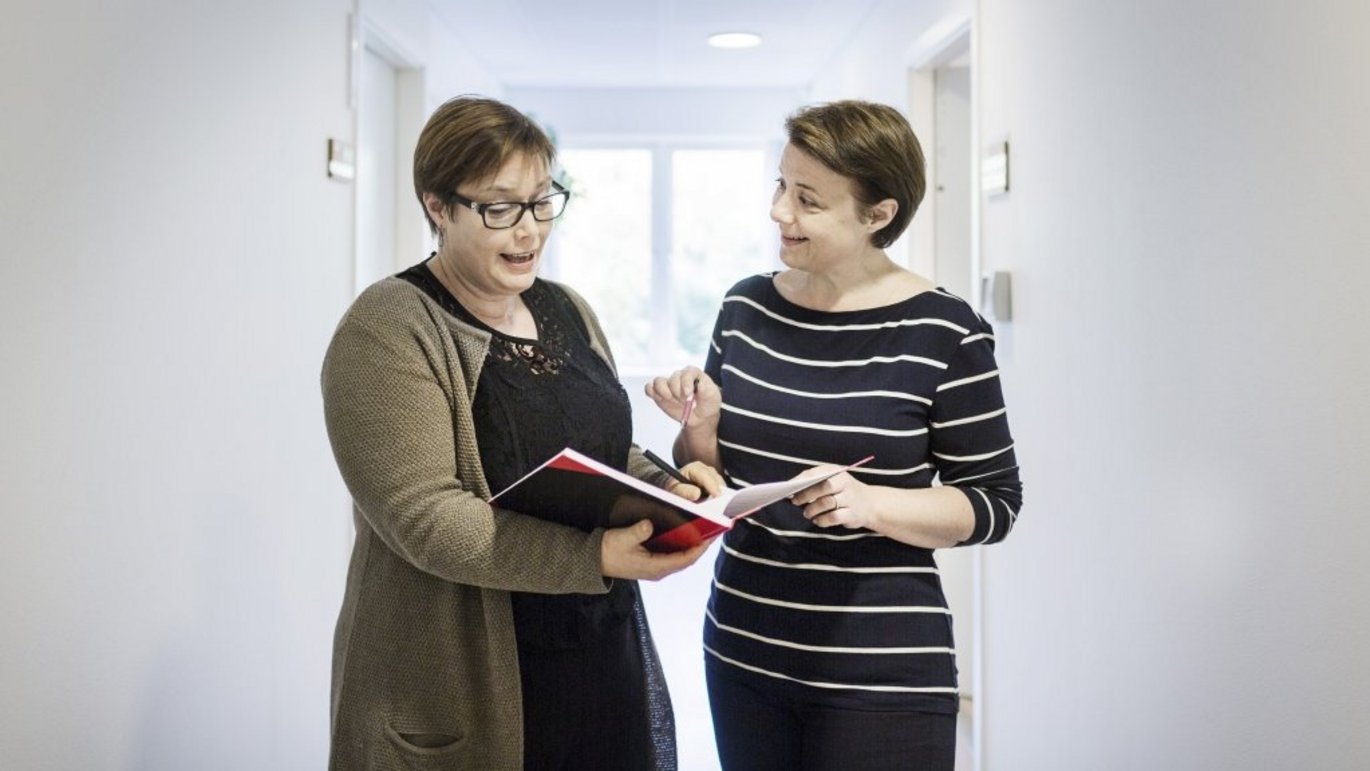7 methods for peer mentoring
Peer mentoring sometimes happens as informal conversations during the coffee break. However, to effectively promote educational competency development, peer mentoring requires a more formal and structured approach and leadership support. In this article, we introduce seven different methods for peer mentoring that are easy to follow.

![[Translate to English:]](/fileadmin/_processed_/6/9/csm_Mette_Krogh_Christensen_22361938e5.jpg)
Associate Professor Mette Krogh Christensen from the CED specialises in educational competency development for teachers and has worked with peer mentoring in various ways for the past 15 years. She emphasises the importance of teachers using their colleagues as mentors in a structured way:
"We need to discover one another as not only an informal but also a formal learning community. We need to work towards a so-called ‘de-privatisation’ of our practices so we can learn from one other and develop our teaching and supervision practices together," she says.
So, while informal conversations during the coffee break are important, there is a lot to be gained from running more structured processes.
"As researchers, we are used to being the ones being asked questions and the ones doing the talking. In other words, to stand by our expertise. But when it comes to peer mentoring, the most important thing is to listen. It is not about giving good and well-meaning advice, which is probably how most of us will automatically react. It is about listening and being reflective. That is why it is essential you frame and articulate the peer mentoring process in order to control the automatic reactions," she states.
Furthermore, she explains that since you take up some of your colleagues’ time when asking for peer mentoring, it is important to structure specific mentoring sessions or plans.
A third important reason as to why it is important to structure peer mentoring is to avoid potential conflicts:
"Conflicts can arise if, for example, colleagues cancel at the last minute, do not contribute with what they promised, or do not commit to the process. That is why you need to match expectations, dates, and practicalities. And perhaps make an agreement with the department head that the peer mentoring is part of an educational competency development activity so that it is not deprioritised in favour of something else in the calendar," says Mette Krogh Christensen.
7 paths to effective peer mentoring
The research on peer mentoring shows that it is a helpful tool to promote knowledge sharing and collaboration in a community of practices. The mentoring contributes to increased reflection on own teaching practices and how they can be developed.
There are several ways to structure peer mentoring. Some methods are used in pairs, while others involve three or more colleagues. You can use some methods if you are short on time and want to start small, while other methods require more time and effort.
On the CED website, Mette Krogh Christensen has outlined seven different methods for peer mentoring:
- 1-1 peer mentoring: A focused dialogue between two colleagues lasting 10 minutes.
- The reflective investigation: Mentoring using a combination of two practices: the reflective conversation and the scientific investigation.
- Mutual observation: A collaborative work strategy in which colleagues engage in observing and providing feedback on one another’s teaching practices.
- Mentorship: A developing collaboration between two people with different experiences where both parties can achieve new learning and personal growth.
- Debriefing in teacher teams: Several teachers participating in a facilitated discussion about shared teaching.
- The reflective team: A structured conversation in a group that encourages learning on both an individual and organizational level.
- Observation-based peer group mentoring: 3-4 colleagues visiting one another's teaching and then discussing and giving feedback on one another's work.
You can read more about the different methods of peer mentoring here.
Peer mentoring requires a safe environment
Some of the above methods of peer mentoring involve observing colleagues' teaching or supervision practices. For some people, this can feel overwhelming.
"You can feel exposed when being observed in your role as a teacher. You can prevent this if you have a strong collaborative culture that promotes trust. At the same time, it is also important that people in the environment are open about the challenges they experience during teaching, but that they can talk confidentially during the peer mentoring sessions," explains Mette Krogh Christensen.
You can promote trust among colleagues by having people select their mentoring partners and structuring the sessions in a way that builds trust between the parties.
"A manager should not mentor a non-manager. But at the same time, creating a safe environment is very much a management thing. It is something you need to actively work on. Therefore, the department and management must contribute to establishing the necessary framework for the mentoring so that teachers can prioritise peer mentoring in line with other teaching obligations," emphasises Mette Krogh Christensen.
How to move forward with the process
Some teachers – new and experienced alike – may feel that they do not have the skills to provide feedback on colleagues' teaching.
"You do not have to be an expert in teaching or supervision to be a good mentor. Peer mentoring is not about giving advice, but about listening to your colleague's considerations and asking the right questions," Mette Krogh Christensen concludes.
The CED can help with peer mentoring and creating an equal dynamic between participants.
"We can help set processes in motion by introducing the different mentoring formats and assessing which ones fit the context. We are also happy to facilitate observation processes and organise workshops on the subject at the departments and in teaching teams at AU," concludes Mette Krogh Christensen.
- Contact Mette Krogh Christensen for further help and advice (+45 93 50 90 38 | mette.k.christensen@au.dk)
- You can also find the CED's guide to peer mentoring here.
